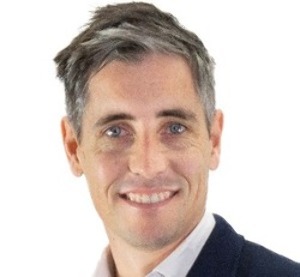
TAP launched its full-service mortgage aggregation platform earlier this year after the acquisition of Q Group. TAP managing director Ryan Edwards says the platform isn’t struggling to attract new business but he does see a level of apathy caused by a lot of change over the past two to three years inside and outside the industry making business difficult for mortgage advisers.
TAP has decided to put its money where its mouth is and say to advisers ‘we know change is difficult, but we are willing to invest money in a partnership’, he says. “We do see it as a partnership and an investment in a long term relationship.”
The aggregator platform is specifically targeting mortgage advisers and if anybody signs up the business says it will cover half the cost for the first six months. On an apples for apples basis, Edwards says TAP’s pricing, of about $750 a month for a standard service, is quite sharp compared with other platforms and it recognises not everyone is rolling in money.
The amount an adviser pays is on a case-by-case basis and other services they choose to use are billed separately.
“We realise a lot of advisers have perhaps got change fatigue. “They might have changed systems over the past 18 months and it hasn’t gone that smoothly. “Often people might look at an alternative and think it sounds good, but the change in their minds is difficult and they don’t do it.”
Changing platforms in general is challenging, Edwards says. “It can become kind of an invisible handbrake. I think academically people think, ‘yes, I should make a change’ but don’t do anything about it.”
He says one of the common pain points for advisers that deters them from switching platforms is concern about the time and accuracy of migrating their existing database. “TAP’s differentiation is it does 95% of the heavy lifting in data migration for an adviser who switches to its platform.
TAP wants to provide an obvious incentive for advisers to consider where their business will be over the next couple of years, he says.
“Advisers need to ask themselves what do they need over the next three years rather than the next three months and if their existing set up is delivering that? Obviously when they are looking at it over a longer time horizon, they usually get a very different answer.”
He says confusing the situation is many advisers are not aware of the options available.
Although there are 10-12 mortgage aggregators, the majority of the market is covered by three or four of the larger aggregators. New Zealand Financial Group Services is the biggest by some margin and Edwards says a lot of people he talks to just aren't aware there are different ways to approach licensing and running a FAP.
“There's no single industry standard, which isn't a bad thing, but 80-90% of the market is probably using one of four or five systems and the remainder, there's quite a few, for better or worse, don't have any system at all, to be honest.
“By throwing our offer out to the market, it's unashamedly to promote what we do and say that we're willing to invest in that partnership because we believe in the long term.”


